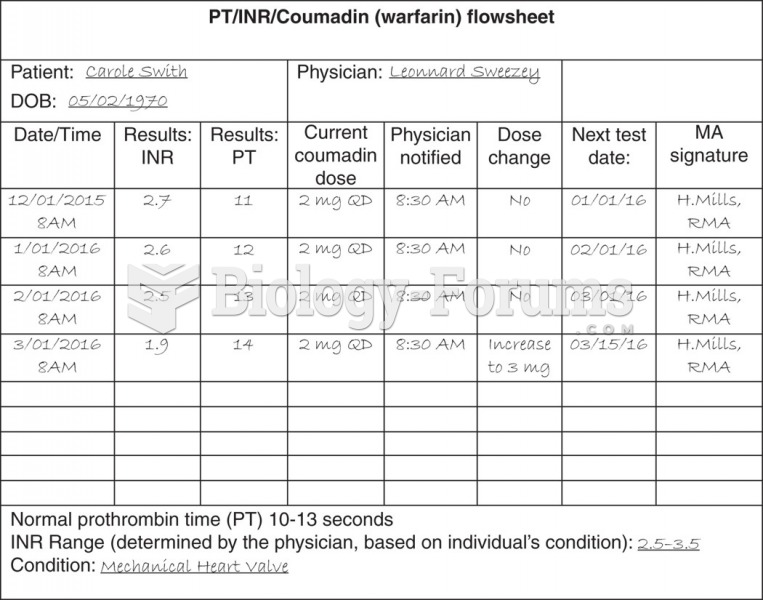|
|
|
Astigmatism is the most common vision problem. It may accompany nearsightedness or farsightedness. It is usually caused by an irregularly shaped cornea, but sometimes it is the result of an irregularly shaped lens. Either type can be corrected by eyeglasses, contact lenses, or refractive surgery.
Asthma cases in Americans are about 75% higher today than they were in 1980.
The calories found in one piece of cherry cheesecake could light a 60-watt light bulb for 1.5 hours.
The average human gut is home to perhaps 500 to 1,000 different species of bacteria.
Barbituric acid, the base material of barbiturates, was first synthesized in 1863 by Adolph von Bayer. His company later went on to synthesize aspirin for the first time, and Bayer aspirin is still a popular brand today.







